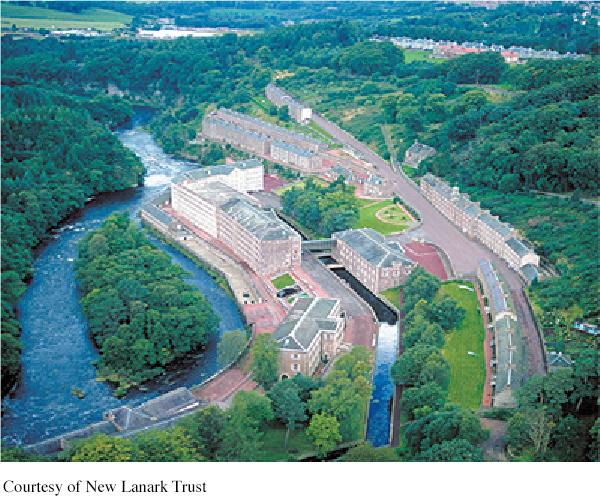
DOING WELL WHILE DOING GOOD— 3-
On a visit to Glasgow, Welsh- n— n- r—
He also designed a goals- r-
The financial success fueled a reform movement for better working and living conditions. By 1816, with decades of profitability still ahead, Owen believed he had demonstrated “that society may be formed so as to exist without crime, without poverty, with health greatly improved, with little if any misery, and with intelligence and happiness increased a hundredfold.” Although that vision has not been fulfilled, Owen’s great experiment laid the groundwork for employment practices that have today become accepted in much of the world.
Courtesy of New Lanark Trust